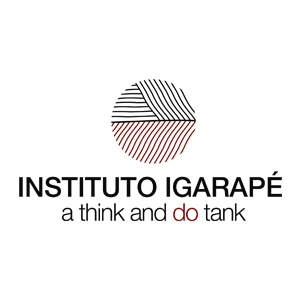New Brief Urges G20 to Bridge the Growing AI Governance Divide between the Global South and Global North
Most artificial intelligence (AI) policies and practices have been developed in and for the Global North—contributing to a growing divide between the countries that influence global AI governance and the countries that do not. If global AI governance continues to predominantly exclude the Global South, then economic and developmental disparities between upper-income and lower-income countries will worsen, according to a new policy brief by New America and the Igarapé Institute.
The brief calls on the Group of 20 (G20) to narrow this “AI governance divide” by taking the following three steps:
- Negotiate a statement on AI governance goals that reflects the priorities of Global South members and stakeholder groups.
- Convene national information and communication technology (ICT) ministers and other ministers responsible for overseeing the digital economy to discuss strategies for building shared policy frameworks and increasing policymaking capacity.
- Create an Equitable AI Development Forum that enables the joint development of AI capabilities among nations, knowledge-sharing, and the distribution of shared AI infrastructure such as datasets among countries.
“The G20 can help bridge the global AI governance divide—especially with Brazil holding the presidency now and soon South Africa taking those reins,” said Gordon LaForge, a senior policy analyst at New America and co-author of the report. “The members of this intergovernmental forum are the most influential countries in the Global North and Global South, representing more than 80 percent of the world’s economy.”
In the brief, New America and the Igarapé Institute describe the current AI governance divide and list the possible consequences that can stem from it. The brief stresses that without having a say in AI governance, developing countries may not be able to create homegrown AI ecosystems that advance sustainable development, and AI tools and policies made in and for the Global North would be ill-suited for the local circumstances of many countries in the Global South.
“Unless developing countries have more power to shape AI governance, the technology will solely reflect the national and commercial interests of wealthy nations, often to the detriment of governments, businesses, and societies with less power and fewer resources,” said Dr. Robert Muggah, co-founder of the Igarapé Institute and co-author of the brief.
“The potential consequences of the AI governance divide are not confined to lower- and middle-income countries alone—they are global,” said Gabriella Seiler, AI and digital security advisor at the Igarapé Institute and co-author of the brief. “Labor displacement, government abuses of human rights, widening economic inequality, political destabilization—these and other factors will drive conflicts and migration that will not stay neatly confined within national borders.”
The brief is published by the Think Tanks 20, or T20, a constellation of hundreds of organizations that produce, debate, and consolidate ideas on emerging challenges for the G20. The issues featured in the brief were also developed as part of a Global Task Force on Predictive Analytics established by the Igarapé Institute and New America. The Global Task Force assembled some of the leading technologists, social scientists, and advocates from across the Americas, Africa, Asia, and Europe to develop principles for the safe and ethical design, development, and deployment of AI systems.
Learn more about the Global Task Force on Predictive AI.
About the Igarapé Institute
The Igarapé Institute is an independent think and action tank committed to citizen, digital, and climate security. Founded in 2010 and based in Brazil, the Institute designs and delivers data-driven and evidence-based solutions to address global challenges. The Institute oversees activities in over 20 countries across the Americas, Africa and Europe leveraging a combination of primary research, technology innovation, strategic partnerships, and global advocacy and communications. Ranked among the top social policy and environment think tanks in the world and a leading non-profit in Brazil, the Institute works with governments, the private sector, and civil society to deliver lasting social impact.
https://igarape.org.br/
About New America
New America is a think tank and civic enterprise dedicated to renewing, reimagining, and realizing the promise of America in an era of rapid technological and social change. Since 1999, New America has nurtured a new generation of policy experts and intellectuals and pioneered bold and successful policy initiatives in areas ranging from education to open technology to political reform. As the nation’s premier idea incubator and accelerator, New America has the unique capacity to quickly innovate new programs and scale existing programs that address the most relevant problems in our society — today, and in decades to come.
https://www.newamerica.org/



